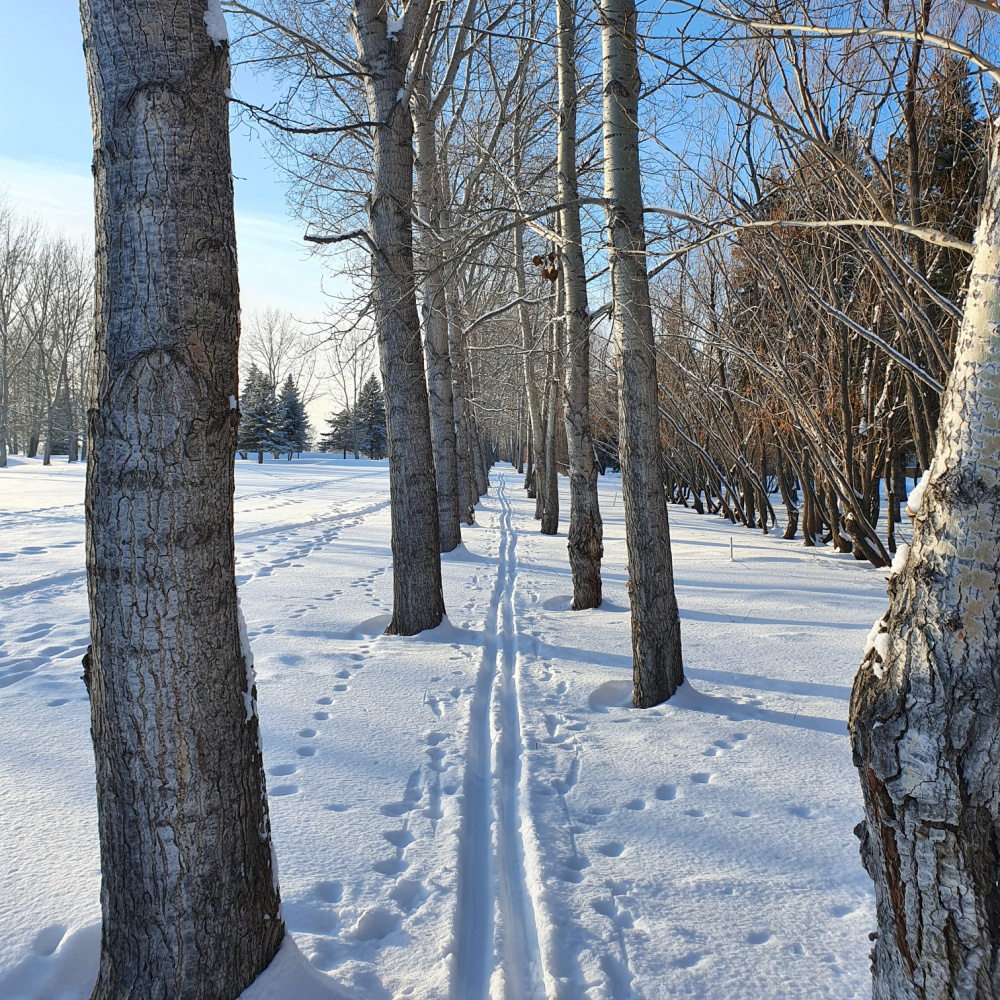
Following your intuition in everyday life is a subject that I have been wanting to write about for quite a while. But always hesitated. For one I thought following your intuition is so obvious, why would anyone even want to read it. After all, that’s what intuition is, you just know.
On the other hand, intuition is such a big subject, there is no way to cover it all in a simple article on a homesteading blog. And it is not my goal to go into details. If you are interested, many books have been written, and talks have been held from many different perspectives.
So today I’m following my intuition and finally writing about it. We will look at it in a very practical way. Following your intuition in the kitchen, garden, and homestead.
What is intuition?
The dictionary says intuition is the ability to understand something immediately, without the need for conscious reasoning.
In other words, you do not have to think through everything, taking all the logical steps. What our grandmother just knew, today has to be studied in college. Even though it has nothing to do with age, but with the ability to be alert without constant thinking.
We can not be fully alert, present in the moment, and think at the same time. We will do one or the other. I often catch myself while doing everyday chores, that my mind is in a totally different place. I’m literally not there. That’s not a state where intuition happens, that’s where I have to redo tasks because I did them mindlessly.
However, intuition does not come from our thoughts, it comes from our attention, awareness, consciousness, presence.
Intuition is not the same as a gut feeling, as some suggest. A gut feeling comes from a past experience. It can be associated with a smell, sound, color, time of the day or year, etc. The memory might not be conscious any longer, just the gut feeling is there. Gut feelings are not very reliable, to say the least.
To demonstrate what everyday life intuition is I wanted to share a few personal examples. So if this concept is totally new to you you can get an idea. You might also find yourself in these examples, and say oh yes, I have experienced that too.
We all experience intuition, but we might not be aware of it. Just like we for the most part are not aware of our breath, or blinking of the eye. Once we become aware of it, we can actively use it.
Following your intuition in the kitchen
I use intuition in my kitchen quite often. However, when I share about it, I share it for example as a freestyle cooking or no-plan meal plan. The underline message is, I follow my intuition. It makes complex everyday tasks so much simpler.
Let’s take a closer look at that and use meal planning as an example.
The most common way to make a meal plan is to use your calendar, a pantry, or a shopping list and make a most practical, and logical meal plan. That’s a very modern way of doing it, and the internet is full of how-tos. That plan takes a lot of steps and effort (hence all the many tutorials). And as valuable as it might be, is not flexible, it can not foresee any upcoming unpredicted events or a sudden sickness where a different food would serve you better.
The second way is a plan that follows your ‘gut feelings’. What do I want to eat? It is hard though to make a ‘gut feeling’ meal plan a week ahead. This might be the reason while so many fail in making a meal plan. That failure leads to guilt and having even less positive vibes about meal planning altogether.
The third way is to use your intuition. You simply skip the complex meal plan altogether. It is not that you will instantly know what that complex meal plan will look like, but you are sure that you will know just in time each day. Life is always now, it has no time. Using intuition involves getting comfortable with not knowing what will unfold. A no-plan meal plan is a great place to start. You do have a blueprint if needed, but it’s loose enough to be flexible.
Practically, it often unfolds like this: I go into my kitchen with no thoughts about what I will make. Sometimes I take a look into my fridge or pantry and get inspired by what I see. Sometimes I just have a sudden inspiration for what I should make.
If I get into my mind, thinking about it too much, intuition does not work. Remember it is not my thought. In this case, I usually go back to my no-plan meal plan, or cookbook. And there is nothing wrong with both. Intuition is really just a great help available to us.
When we practice it in simple things like a meal plan, our intuitive muscles get trained for times where it is more important.
I remember having an urge to make a meal for a friend, whom I did not know was sick. Or do baking for guests that hadn’t told me they were coming. If I already know that I can trust my intuition, it is very helpful.
Following my intuition, I can also make a meal from about any ingredients we have in the house. Sometimes I write it down afterward because we really liked it.
Your intuition is closer to you than your brain, and it is also easier to use. Brain activity costs energy, intuition just is.
Following your intuition in the garden
I’m currently taking the permaculture design curse (PDC). We are learning so much about the weather patterns, microclimates, soil, plants, etc. It is very interesting, and honestly often way above my head. Permaculture is a very broad and complex subject.
As a long-time gardener though, in some subjects, I’m basically learning the theories of the practice that we have been doing for years. That might seem backward, and in conventional thinking it is. How can I do something well, unlearned?
I love sharing with you what we do in our garden, however, I also often felt unqualified, since I have had no training in it. Sure after many years of gardening, I have accumulated a lot of practical knowledge. My hope for the PDC was to close that gap even more.
Quite unexpectedly though what I am learning is far more valuable than being able to hold a certificate.
It opened my eyes to the significance of intuition in gardening. Learning the complex theories of gardening, I’m in amazement of the simple inner wisdom that is available to us at each and every moment if we are just willing to tune in.
Gardening is almost impossible to learn in a class. Not that those classes and courses are not valuable, but to really do it, you have to get out and be in the garden.
My grandmother, who lived with us, was a great gardener. My mother used to say that when grandmother passed she took the blessing of the garden with her. Of course, that’s not what happened. My grandmother loved the garden, she spend lots of time there. She knew what plants needed. I must have inherited some of it.
I have always been a very intuitive gardener. I often say that plants talk. I usually greet them when I enter the garden (tell me I’m not the only one). Of course, plants don’t say anything verbally, but on the intuitive level. If you haven’t yet, start listening.
Recently my lime tree got too cold. The Mayer lemon next to it is fine, but plants react very differently to cold and frost. Observing it I had the intuitive input that I should leave it alone. Not do anything. Later I checked if my intuition was spot on, and it was.
Following intuition, things might not always make sense to you. For example, I wanted to do a vegetable garden plan for next year at the end of the summer. All my reasoning told me that that was a great idea. I had everything in front of me, what was growing where and what did well, and whatnot.
My intuition was telling me though, that I should not make that plan. I was really close to ignoring it. After all, there was no reason why not that I could think of. Generally speaking, it really is a good idea to make a plan during the growing season.
Later in the fall, we bought some land, and I started the PDC. Now I know that making a plan for my existing garden would not have been helpful. Next year we will rearrange our vegetable garden and implement newly gained knowledge.
These are all just simple everyday life examples, that hopefully give you a taste of what intuition is and how it can be used wherever you are. Don’t overthink it, intuition has nothing to do with thinking. Allow it to come to you and start following it in small manners.
What works in the kitchen and in the garden works in all kinds of everyday life experiences. If you have a story to share, where following your intuition helped you, please do so in a comment below.
We invite you to subscribe to Northern Homestead and follow us on Instagram, Facebook, or Pinterest for the latest update.
More posts you might enjoy
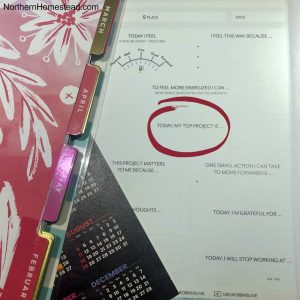
Making Progress on One Important Thing a Day
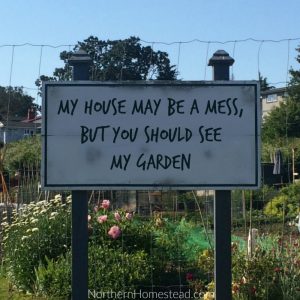
Implement the FlyLady System to Support Homesteading

5 Kitchen Tools to Save Money on Food

DIY and Low-Cost Windows and Doors Insulation Options

Why We Would Recommend a KoMo Fidibus Grain Mill

Do food growers need nutritional supplements?
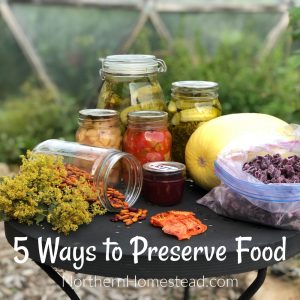
5 Ways to Preserve Vegetables, Fruits, and Herbs

Heating your Home with a Wood Stove in Town
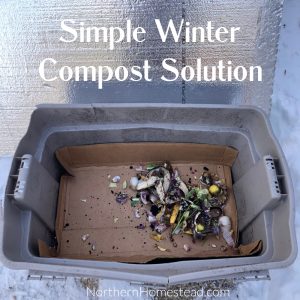
Simple Winter Compost Solution
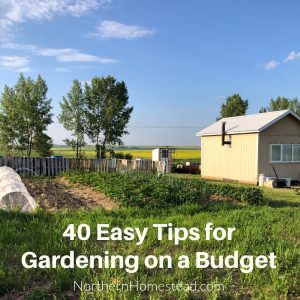

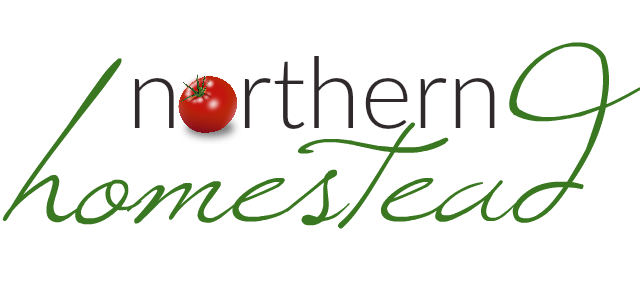
I am so glad you wrote about intuition. I have tried to explain to people “why” we just bought 15 acres outside Grande Prairie. We walked around outside and intuitively knew what we could do with the space. Continue our woodworking, create gardens, plant fruit trees etc and it just felt right. I appreciate your posts and have referred to them for my gardening.
Congratulations on your new land. To explain intuition is almost impossible, and maybe there is no need for that. We can just enjoy it ourselves.
I love that you are reminding us that we all have intuition. I can see now that I have had those moments too, with cooking, gardening, gift buying, yoga… but I also often thought I was “getting away with something”, avoiding doing the hard work. What a great invitation, to practice MORE of it! I’m in!
We love to do it the hard way, don’t we? Glad I could encourage you to use the gift of intuition more.
You commented that you must have inherited some of your grandmother’s gardening intuition. I’ve had a similar experience with sewing and handwork. Both my grandmothers sewed, one of them a seamstress, and also did knitting, crochet, embroidery, tatting. My mom had little interest although she could sew a bit and had knitted and embroidered a little when she was young. I learned the very basics of how to use the sewing machine from her and nothing from my grandmothers – one was very old by the time I could have learned and the other very busy running a business. Yet, I became quite a proficient seamstress even in High School. To me, a lot of things about sewing were just obvious. I just knew. I also read about sewing, of course, but a lot has been intuition. The same has been true of all the other handwork that I have since picked up. I would have liked to have learned all that my grandmothers knew but am so thankful that I at least got the talent for it. Interesting also – of 5 girls, I was the only one.
That’s very interesting, thank you for sharing.